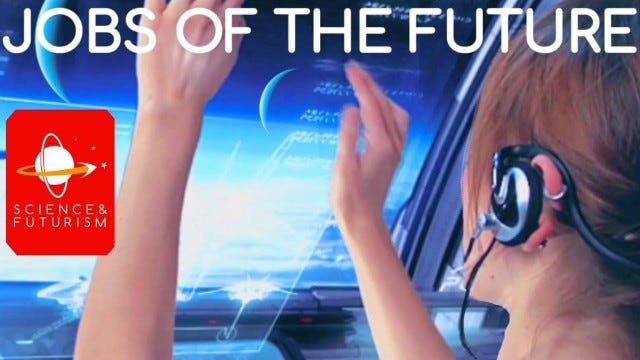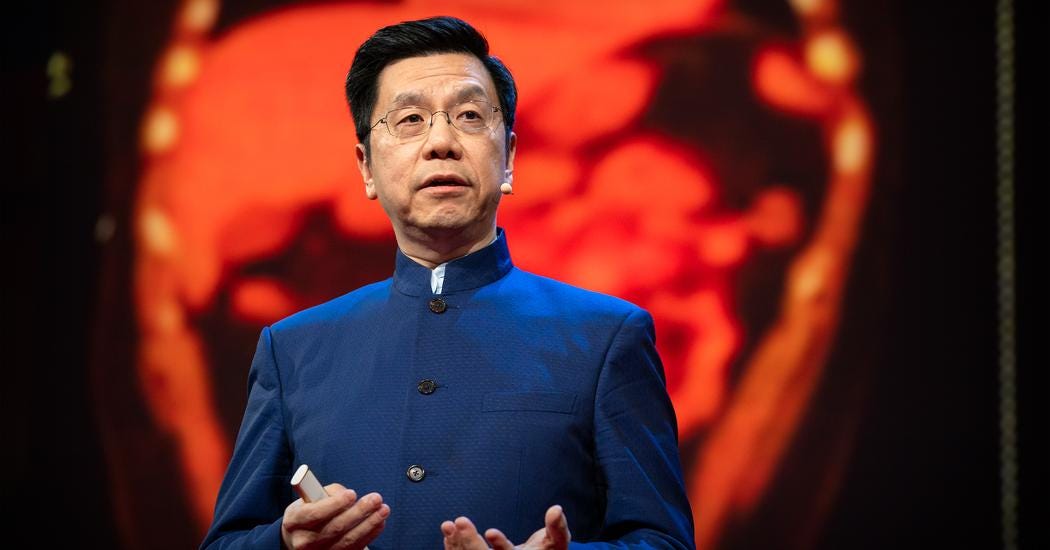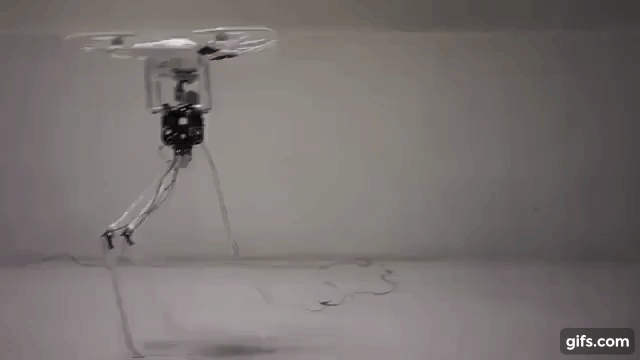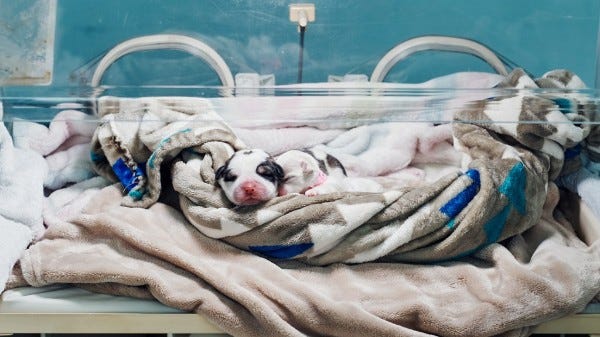Issue #167 - cloning dogs; rejuvenation is an industry now; how will the jobs of the future look like; DeepMind gets good at detecting eye diseases
View this email in your browser
This week - cloning dogs; rejuvenation is an industry now; how will the jobs of the future look like; DeepMind gets good at detecting eye diseases; and more news and articles on transhumanism, artificial intelligence, robotics and biotech!
Isaac Arthur - Jobs of the Future

How will the jobs in the future look like - Isaac Arthur asks and answers in his new video. Many people talked about the impact of automation and AI on jobs, but Isaac took a different approach to the topic. He added human enhancements and transhumanism into the mix to find out what people in the future might be doing when almost everything is automated. The main takeaway from the video - be versatile.
MORE THAN A HUMAN
Eternal youth may be possible. Which age would you stay at forever?

Michio Kaku explains the two types of immortality - digital immortality and biological immortality. The first one revolves around making a digital copy of you, with all your memories and personality. The second kind of immortality will try to preserve your body for as long as possible. Kaku also asks an interesting question - if you could become immortal, at which age you would you stop ageing?
How to edit a human?
Here's a story of life - from the very beginning to the discovery of DNA to the present day when we learn how to manipulate DNA with genetic engineering and CRISPR. The article centres around Jennifer Doudna and her contribution to the discovery of CRISPR. As always in this kind of articles from popular sources, it ends up with the questions about the future and ethics of genetic engineering, especially when it comes to engineering humans.
Scientists Just Successfully Reversed Ageing in Lab-Grown Human Cells
Researchers have successfully reversed the ageing of lab-grown human cells, which could provide the basis for future anti-degeneration drugs. The method they used uses a chemical that is toxic in large amounts, so they need to find a way to deliver it directly to the part of the cell where it is needed.
Prosthetic Limb Restores a Sense of Body Position
Scientists have made huge strides in controlling robotic limbs with the nervous system, but providing a sensory feedback has proved more challenging. Now, however, a team led by biomechanical engineer Hugh Herr (you may know him from this TED Talk), also at MIT., has created a prosthetic leg with proprioception - the ability to feel where it is.
Dr Aubrey de Grey — Rejuvenation is Finally an Industry
In this talk (27 minutes long), Aubrey de Grey tells about recent developments in rejuvenation, which he is happy to announce is no longer a field but an industry.
ARTIFICIAL INTELLIGENCE
Kai-Fu Lee: How AI can save our humanity

AI is massively transforming our world, but there's one thing it cannot do: love. In a visionary talk, computer scientist Kai-Fu Lee details how the US and China are driving a deep learning revolution - and shares a blueprint for how humans can thrive in the age of AI by harnessing compassion and creativity. "AI is serendipity," Lee says. "It is here to liberate us from routine jobs, and it is here to remind us what it is that makes us human."
People are averse to machines making moral decisions
Researchers asked themselves the question - do people want autonomous machines making moral decisions? They have found that no, people don't want machines to make moral decisions. The paper describing their results is behind a paywall (but if you need it, you will find a way)
DeepMind says its AI can detect eye diseases as well as human doctors
DeepMind shared results from a joint research partnership with Moorfields Eye Hospital in London, which could potentially transform the management of sight-threatening eye disease. The company says it’s now ready to show off its work, as it says its system can detect more than 50 different diseases as accurately as experienced doctors.
AI Can Help Create a Better World—If We Build it Right
Ben Goertzel does not see AI as a villain like some do. He sees how AI is levelling the playing field by advancing basic infrastructure in the developing world, allowing countries like China and more successful African nations to compete and cooperate globally. But he also sees an obstacle to the realization of AI’s potential for global good - the current socioeconomic organization of the AI industry centred on big tech companies and large military-industrial complexes. His solution for this problem - open-source and democratize the way we create AI.
ROBOTICS
This bipedal robot has a flying head

Another addition to the curiously looking robots list. Researchers from University of Tokyo have attached legs to a drone and made a bipedal robot with a drone for a head. The result is an interesting looking robot.
A furious fight between crawfish and a robot
Japanese kaiju movies have become a reality.
BIOTECHNOLOGY
Inside the Very Big, Very Controversial Business of Dog Cloning

Cloning is here and has become a business. At least for dogs. Hwang Woo-suk runs a company in South Korea that can bring back your loved dog back to life. Well, at least its biological identical copy. Vanity Fair tells the story of Hwang Woo-suk's laboratory and ponders on ethics of such businesses.
Biotech Breakthroughs and Big Ideas in 2018
Guys from NEO.LIFE asked several researchers and entrepreneurs what they’re looking forward to this year—and what they want people to understand about their work. The answers range from innovations in food, medicine, brain-machine interfaces, sex and sleep to do-it-yourself biology.
Thank you for subscribing,
Conrad Gray (@conradthegray)
If you have any questions or suggestions, just reply to this email or tweet at @hplusweekly. I'd like to hear what do you think about H+ Weekly.
Follow H+ Weekly!



